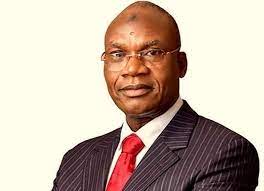The Federal Government has approved N5.1 billion for 185 Tertiary Education Trust Fund (TETFund) research grants in furtherance of its sustained drive to transform Nigeria into a technology-driven country through innovation and creativity.
TETFund introduced the National Research Fund (NRF) grant to promote cutting-edge research, which experts consider as a critical tool for the nation’s economic reengineering to boost productivity and raise the standard of living of millions of Nigerians living below poverty line.
The Minister of Education, Prof. Tahir Mamman, in a statement by the Acting Director, Public Affairs of TETFund, Abdulmumin Oniyangi, said the approval followed the report of the TETFund National Research Fund Screening and Monitoring Committee (NRFS&MC), which recommended the funding of the 185 research proposals after meticulously screening 4,287 concept notes from prospective applicants.
He stated: “A breakdown of the approval indicates that the sum of N3,784,635,923.00 was approved for the Science, Engineering, Technology, and Innovation (SETI) thematic group; N759,875,400.00 for Humanities and Social Science (HSS); and Cross Cutting (CC) received N583,669,300.63 with individual grants ranging between N8 million and over N46 million.
“Some of the approved research works under the Science, Engineering, Technology, and Innovation (SETI) thematic group include Application of the Hydro-Biogeochemical Framework to Develop a National Rural Water Quality Assurance Plan for Sustainable Water Quality Management in Nigeria.
“Development and Use of Doubled Haploid Maize Lines for Improved Maize Yield and Tolerance to Armyworm (Spodoptera Frugiperda); Development of an Intelligent Multichamber Evaporative Cooling Preservative System for Post-Harvest Storage of Selected Fruits in Nigeria; and Development of an Electric Vehicle With Special Tracking Features, among others”, the Director added.
Available information on the projects under the cross-cutting thematic group showed that they include the utilisation of scrap tyres and plastic waste as aggregate conductive materials for renewable energy storage systems; development of appropriate technology for the production of aluminium alloy sacrificial anodes for applications in the Nigerian oil and gas industry; and development of an economical low voltage programmable electroporator and investigation of pulse electric field for wound healing and cancer treatment, among others.






